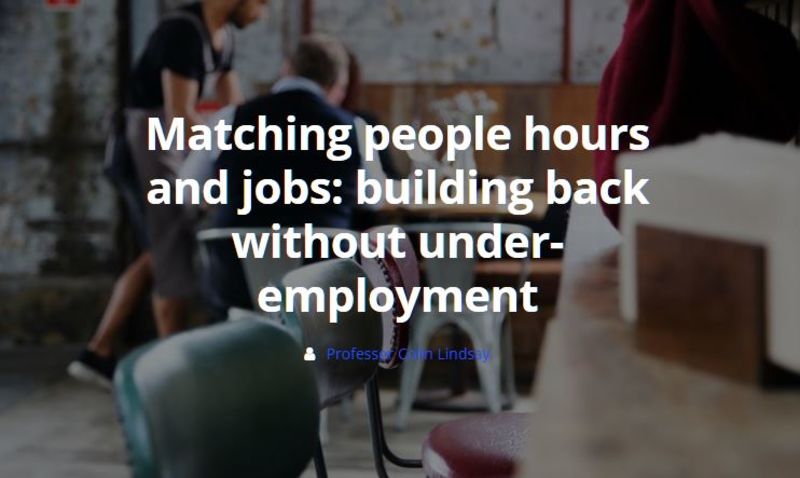
Matching People to Jobs
Professor Colin Lindsay, University of Strathclyde and the PrOPEL Hub

There has been much discussion of the need, and opportunity, to build back better following the Covid-19 crisis. While much of the focus has rightly been on responding to the coming unemployment crisis, there is also a sense that we need to grasp the opportunity to create a ‘new normal’ that addresses some of the long-standing inequalities in the UK labour market.
One recurring problem has been that of under-employment – where workers want and need more paid hours but are not able to secure them. In late 2020, it was estimated that more than 3.5 million UK workers were under-employed (approximately 8.7% of the labour force).
The consistently high numbers of people under-employed is a problem that needs a fix as we re-boot the UK economy post-Covid-19. A recent analysis of EU and US data by David Bell and David Blanchflower suggests that under-employment contributes to limited pay and career progression for some workers. This adds to a growing evidence base that under-employment can impact negatively on employees’ wellbeing; contributes to in-work poverty; and limits opportunities for learning and progression. These negative impacts on employees contribute to socio-economic inequalities and may undermine the performance and productivity of organisations, sectors and regions. So, understanding the drivers of under-employment is important.
The Universities of Strathclyde and Portsmouth, funding by the ESRC Productivity Insights Network, have been researching the distinctive drivers and impacts of under-employment in different areas of UK, and how the workplace practices adopted by employers either contribute to or help to alleviate the problem. Head over to https://www.propelhub.org/matching-people-hours-and-jobs-building-back-without-under-employment/ for more on the research and to watch the research team discuss findings at a recent webinar.